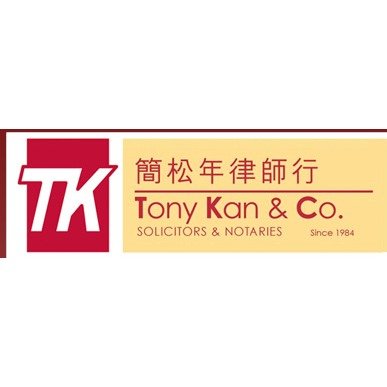Best Insurance Fraud Lawyers in Shatin
Share your needs with us, get contacted by law firms.
Free. Takes 2 min.
List of the best lawyers in Shatin, Hong Kong
About Insurance Fraud Law in Shatin, Hong Kong
Insurance Fraud Law in Shatin, Hong Kong is designed to protect insurance companies, policyholders, and third parties from fraudulent claims. Such fraud includes staged accidents, exaggerated injury claims, fraudulent property damage reports, and various forms of insurer fraud. In Hong Kong, fraudulent practices are strictly monitored and punishable by law. Consequences can range from hefty fines to imprisonment based on the severity of the offense.
Why You May Need a Lawyer
In situations such as being accused of insurance fraud, having a dispute with an insurance company, or being a witness to fraudulent activity, you may require legal guidance. A lawyer equipped with experience in Insurance Fraud Law can help you understand your rights, develop a strong defense, or guide you through the reporting process. Additionally, understanding the complex legal language and navigating through the legal system can be made simpler with the assistance of a lawyer.
Local Laws Overview
In Shatin, Hong Kong, specific laws and regulations that apply to insurance fraud include the Crimes Ordinance (Cap. 200) which covers fraud, theft, and false accounting; and the Theft Ordinance (Cap. 210) which pertains to fraud by false representation. Falsely representing an insurance claim in this jurisdiction is considered a criminal act and can incur penalties including imprisonment or significant fines. Understanding these laws will be vital in mounting or defending a case related to insurance fraud.
Frequently Asked Questions
What are the penalties for Insurance Fraud in Shatin, Hong Kong?
Penalties for insurance fraud range from fines of varying amounts to imprisonment, depending on the severity of the fraud committed.
What actions can be considered as Insurance Fraud?
Staging accidents, exaggerating claims, false documentation or misrepresentation, and fabricating loss or damage can all be considered insurance fraud.
If I unknowingly become involved in insurance fraud, what should I do?
If you find yourself accidentally involved in a fraudulent situation, it is recommended that you report the situation to your insurance company and seek legal advice immediately.
How does one prove insurance fraud?
Proving insurance fraud can be complex and typically involves thorough investigation, evidence gathering, and legal processes. Accusations are often backed by inconsistencies in claims' documentation, witness reports, and evidence of false reporting or exaggerated claims.
What are the defenses to an accusation of insurance fraud?
Every situation is unique, but some defenses may include a lack of knowledge or involvement in the fraud, no intent to defraud, or misinterpretation or errors from the insurance company side.
Additional Resources
Those needing legal advice on insurance fraud can seek assistance from local law enforcement agencies, the Hong Kong Federation of Insurers (HKFI), and the Insurance Claims Complaints Bureau (ICCB). Legal aid services and free legal advice clinics can also provide further support.
Next Steps
If faced with an insurance fraud case, your first step should be to gather as much evidence as possible and report the incident to your insurer and to the police. At this stage, it would also be worthwhile to consult with a lawyer who specializes in Insurance Fraud Law in Hong Kong. These professionals can provide you with a clear understanding of your rights, guide you through the legal process, and represent your interests throughout the case proceedings.
Lawzana helps you find the best lawyers and law firms in Shatin through a curated and pre-screened list of qualified legal professionals. Our platform offers rankings and detailed profiles of attorneys and law firms, allowing you to compare based on practice areas, including Insurance Fraud, experience, and client feedback.
Each profile includes a description of the firm's areas of practice, client reviews, team members and partners, year of establishment, spoken languages, office locations, contact information, social media presence, and any published articles or resources. Most firms on our platform speak English and are experienced in both local and international legal matters.
Get a quote from top-rated law firms in Shatin, Hong Kong — quickly, securely, and without unnecessary hassle.
Disclaimer:
The information provided on this page is for general informational purposes only and does not constitute legal advice. While we strive to ensure the accuracy and relevance of the content, legal information may change over time, and interpretations of the law can vary. You should always consult with a qualified legal professional for advice specific to your situation.
We disclaim all liability for actions taken or not taken based on the content of this page. If you believe any information is incorrect or outdated, please contact us, and we will review and update it where appropriate.








